When you think Toyota New Zealand and power, you probably think of an “h” word: hybrid. And rightly so. The brand has led the hybrid market for as long as it’s existed and the technology is currently booming in a new-vehicle market that’s otherwise on a downer.
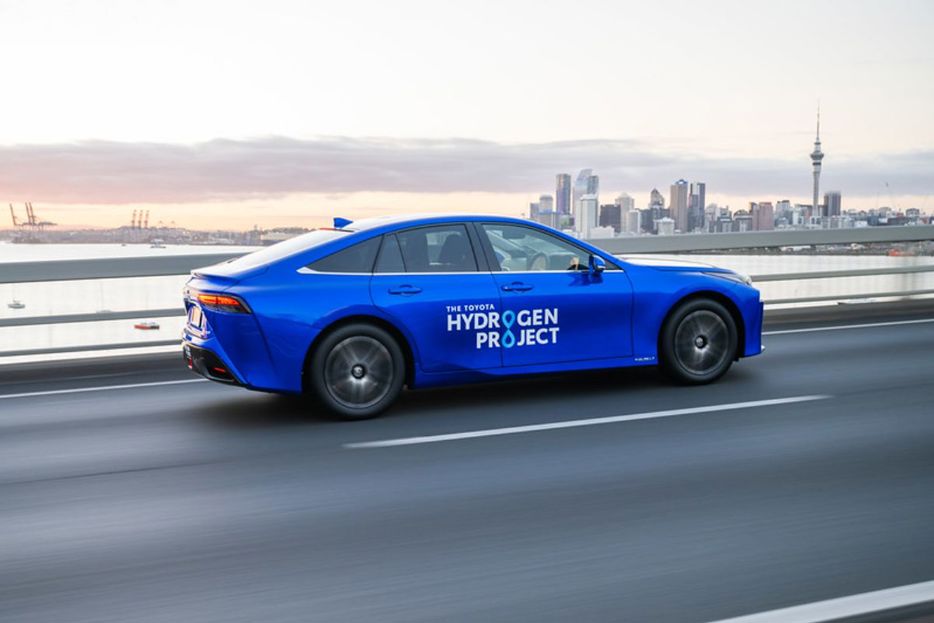
But going forward, Toyota NZ would also like to think it’ll be synonymous with another “h” word: hydrogen.
It’s rooted in the car world, as you might expect. Toyota is one of the handful of global giants currently manufacturing hydrogen fuel cell passenger cars (others include Honda and Hyundai). There’s virtually no hydrogen refuelling infrastructure in NZ for public use yet, but Toyota has Mirai FCEV (fuel cell electric vehicles) on the road here as part of a City Hop car-share trial scheme.
But cars are not the core of Toyota NZ’s hydrogen efforts; at least not yet.
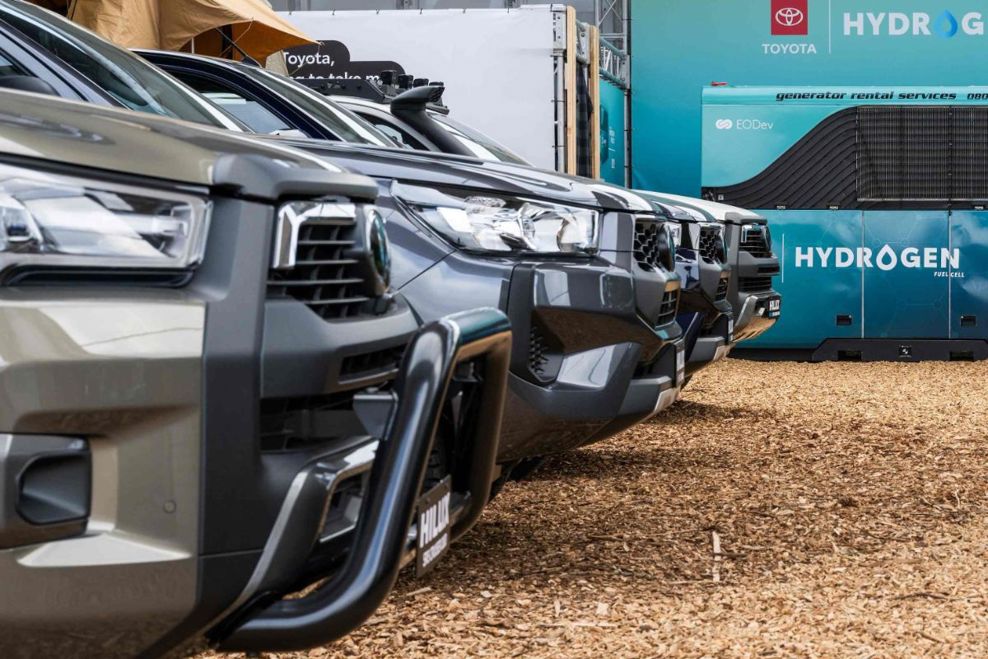
Visitors to Fieldays in June would have noticed an enormous turquoise and blue box at the back of the Toyota NZ stand. That was a hydrogen generator (the signs screamed it) powering the site; Toyota had the same last year, although it was pretty much hidden behind the scenes. This year it was front and centre, right next to Hilux-central.
Toyota NZ is the official distributor for these hydrogen generators, currently built by a European company called EODev. Toyota NZ chief executive Neeraj Lala is also on the board of Toyota Australia, which has now secured a licence to build the same units at the Altona plant previously used for car manufacture. But while a separate company will distribute the generators in Australia, Toyota NZ will still be the go-to for the Kiwi market; it’s partnered with Generator Rental Services to help roll them out.
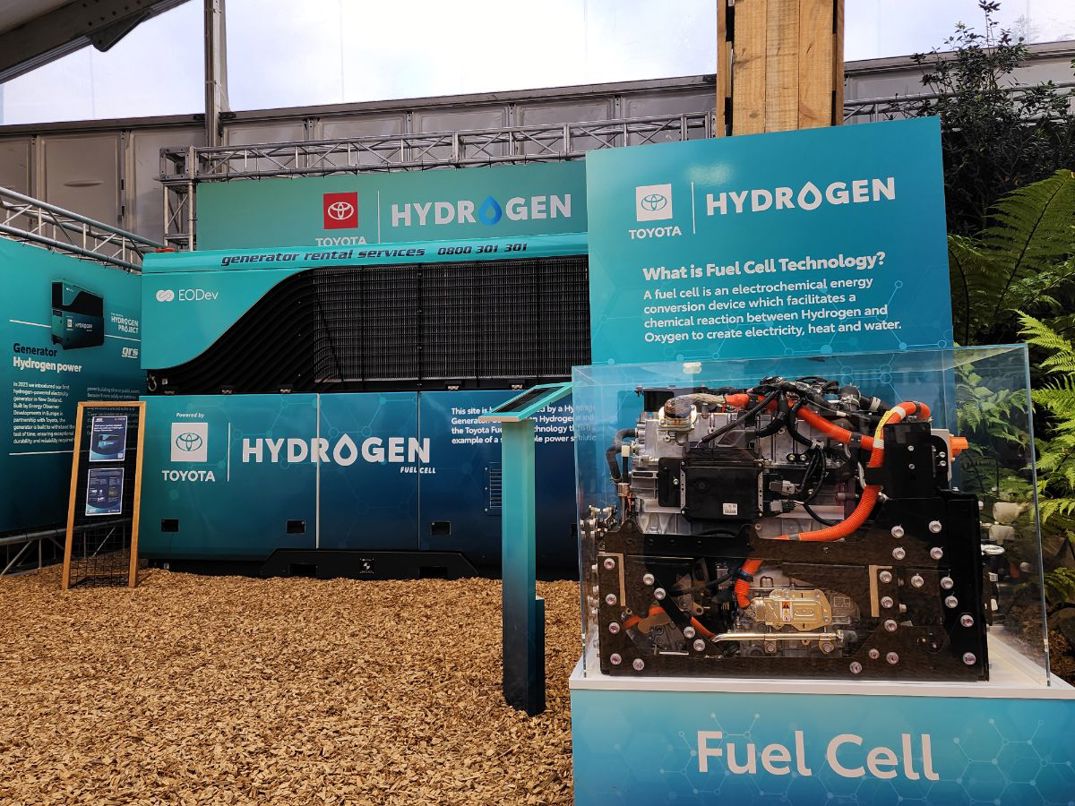
“From an infrastructure and supply perspective, we want to be a part of how it works,” says Andrew Davis, vice president of mobility for Toyota NZ. “We’ve got three verticals of hydrogen that we’re establishing: the generator stuff, we’ve got Mirai - although not until we’ve got accessible hydrogen refuelling to make it work - and then the fuel cells themselves.”
The generator is impressive because it’s unobtrusive – not in size, but in quiet operation. Even at full power, you can carry on a conversation right next to it and of course the only emission is water.
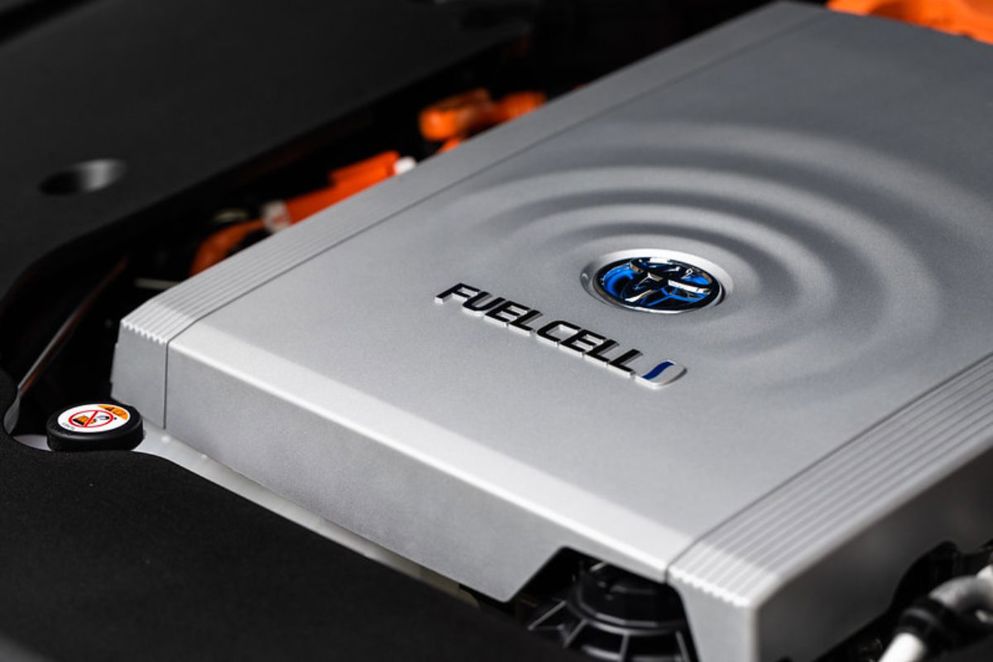
Inside, the generator has the same fuel cell (which converts hydrogen and oxygen to electricity, simple as that) as a roadgoing Mirai: 80kW, although it can run at up to 88kW under full load. It used between 20-24kg of hydrogen on site at Fieldays, which Toyota NZ says saves about a tonne of CO2 compared to a diesel generator.
“We’re really down the road, really close to three confirmed sales already,” says Lala. “They’re about 10 times more expensive than a diesel generator, so we’re hoping to tap into EECA. But we’re forecasting to sell another another six over the next 12-15 months. We believe it’ll be a game-changer. For events, you can’t get any better, because it’s so quiet.”
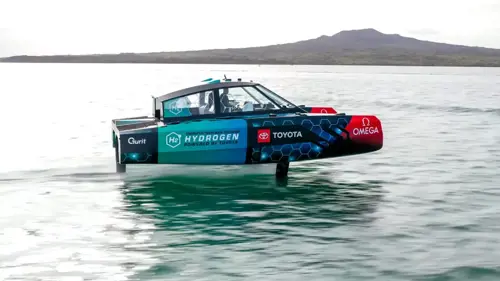
Toyota NZ’s connection to the hydrogen-powered foiling chase boat (Chase Zero) developed by Emirates Team NZ for the America’s Cup, which will be used by all teams, was the catalyst for the company to take on fuel cell distribution rights.
Each chase boat is powered by a pair of 80kW Mirai fuel cells (same as those used in the generator). The boats are built in China and there’s extensive testing still going on ahead of the America’s Cup in August-October in Barcelona, but every one of the 12 fuel cells (two each for six boats) has been supplied by Toyota NZ.
Toyota NZ is also starting to supply fuel cells to heavy transport. “We’ve got two going into a truck in the South Island and there’s bus infrastructure in Christchurch with a company called Global Bus Ventures,” says Davis.
“This is about how you build resilience in the business beyond just cars and mobility,” says Lala. “This is something that was offered to us and we’ve just wrapped our arms around it.”





